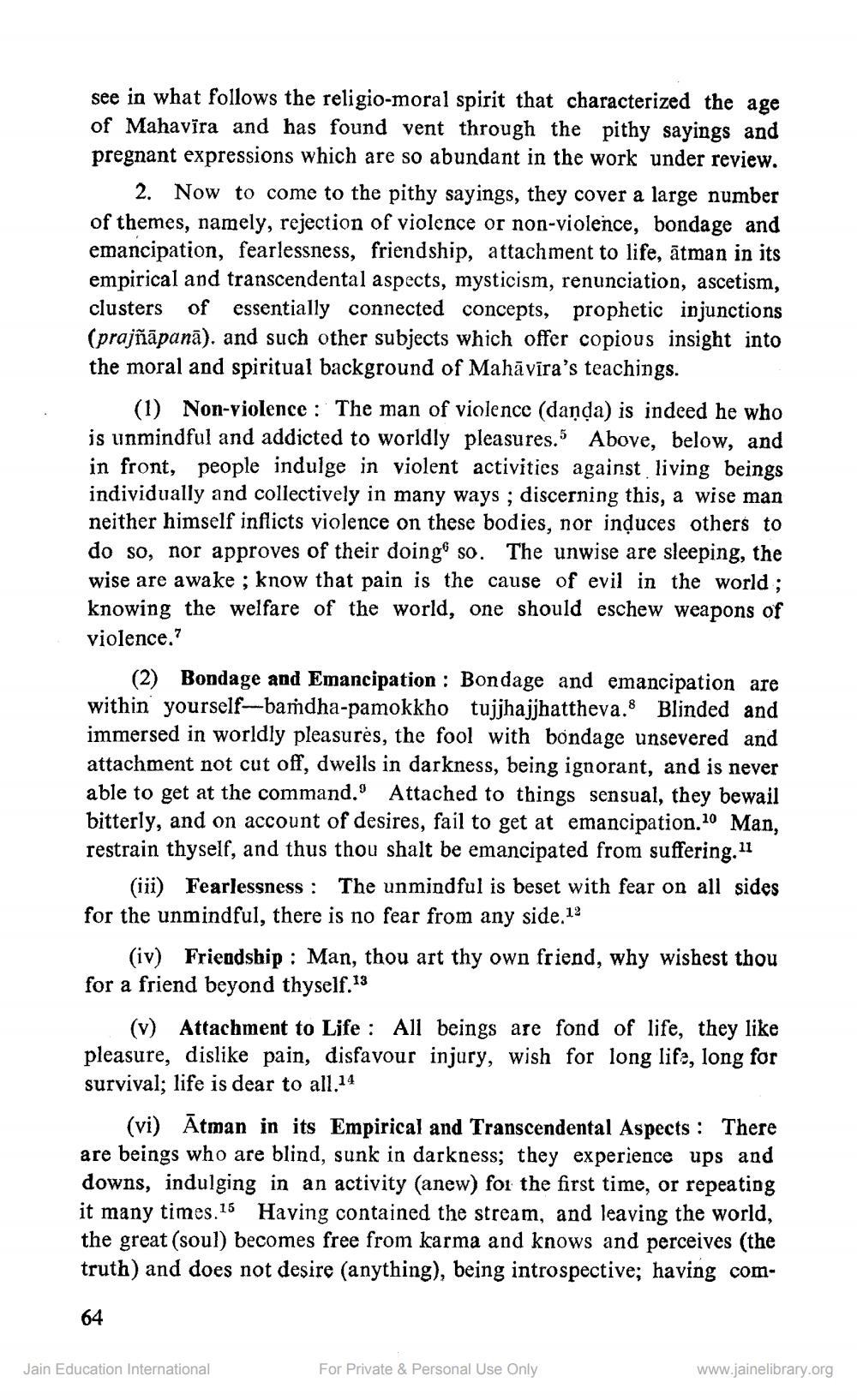________________
see in what follows the religio-moral spirit that characterized the age of Mahavira and has found vent through the pithy sayings and pregnant expressions which are so abundant in the work under review.
2. Now to come to the pithy sayings, they cover a large number of themes, namely, rejection of violence or non-violence, bondage and emancipation, fearlessness, friendship, attachment to life, atman in its empirical and transcendental aspects, mysticism, renunciation, ascetism, clusters of essentially connected concepts, prophetic injunctions (prajñāpanā), and such other subjects which offer copious insight into the moral and spiritual background of Mahāvīra's teachings.
(1) Non-violence: The man of violence (danda) is indeed he who is unmindful and addicted to worldly pleasures.5 Above, below, and in front, people indulge in violent activities against living beings individually and collectively in many ways; discerning this, a wise man neither himself inflicts violence on these bodies, nor induces others to do so, nor approves of their doing so. The unwise are sleeping, the wise are awake; know that pain is the cause of evil in the world; knowing the welfare of the world, one should eschew weapons of violence."
(2) Bondage and Emancipation: Bondage and emancipation are within yourself-baṁdha-pamokkho tujjhajjhattheva. Blinded and immersed in worldly pleasures, the fool with bondage unsevered and attachment not cut off, dwells in darkness, being ignorant, and is never able to get at the command." Attached to things sensual, they bewail bitterly, and on account of desires, fail to get at emancipation.10 Man, restrain thyself, and thus thou shalt be emancipated from suffering."1
(iii) Fearlessness : The unmindful is beset with fear on all sides for the unmindful, there is no fear from any side.12
(iv) Friendship: Man, thou art thy own friend, why wishest thou for a friend beyond thyself.13
(v) Attachment to Life: All beings are fond of life, they like pleasure, dislike pain, disfavour injury, wish for long life, long for survival; life is dear to all.14
(vi) Atman in its Empirical and Transcendental Aspects: There are beings who are blind, sunk in darkness; they experience ups and downs, indulging in an activity (anew) for the first time, or repeating it many times.15 Having contained the stream, and leaving the world, the great (soul) becomes free from karma and knows and perceives (the truth) and does not desire (anything), being introspective; having com
64
Jain Education International
For Private & Personal Use Only
www.jainelibrary.org




